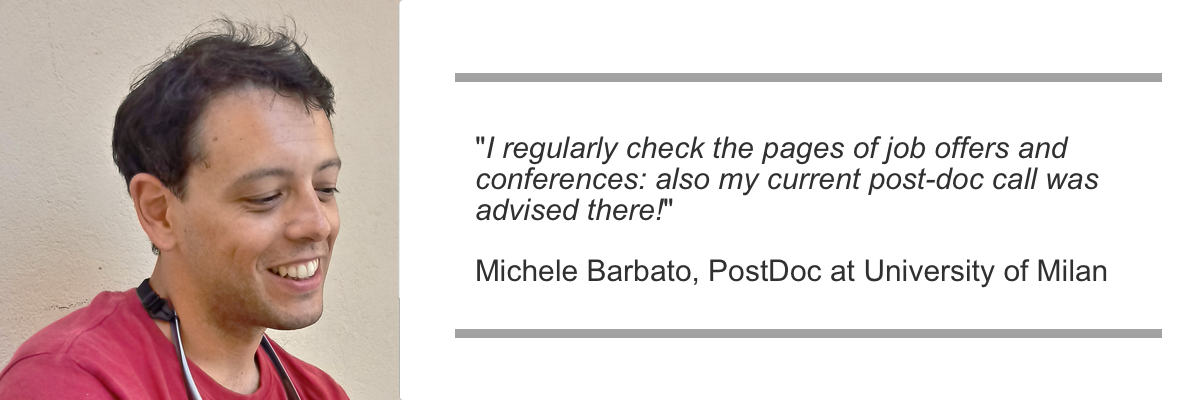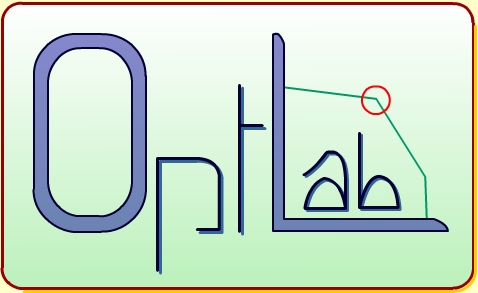Michele, what studies have you done in the field of Operations Research and/or Applied Mathematics?
I obtained a Master degree in Mathematics from University of Padova. My master thesis was on lifting valid inequalities for polyhedra.
Subsequently, I obtained a PhD degree in Computer Science from Université Paris 13, in France, with a thesis in Optimization supervised by Roberto Wolfler Calvo, Mathieu Lacroix and Roland Grappe.
At the end of your master's, which kind of position were you looking for: Academy or Industry? And at the end of the PhD instead?
Both at the end of my master's and of my PhD I was more interested in academic positions.
And here comes the AIROYoung website.
Yes, one of the earliest AIROYoungers,
Veronica Dal Sasso,
told me about it and I think it's very useful, mainly for two reasons.
First, it is a
well-organized and regularly updated website
where it is easy to find information about conferences and job opportunities.
Furthermore, there is a
good balance between academic and industrial positions published on the website.
The second reason is that the AIROYoung website lets young operations researchers enter and then actively participate to the life of the Italian OR community.
Which are the main features of the AIROYoung website you use the most?
I regularly check the pages of
job offers and conferences: also my current post-doc call was advised there!
I have used the
Resources
page too, in the past, because it contains some
useful tutorials.
Well, we are glad that in a certain way we have contributed to make you find your position! More in details, what is your post-doc about and which OR methodologies and techniques did or do you use?
I am currently studying several problems arising from the management of automated warehouses. These are very complex systems, with many components interacting with each other and giving rise to several combinatorial optimization problems.
A first goal of my post-doc was to understand which components (or more complex sub-systems) of the automated warehouse under study can be optimized efficiently and which are instead theoretically difficult.
Depending on the answer, together with some of my colleagues involved in the same project, we design exact or heuristic algorithms to tackle the corresponding problems.
This part of my work involves
classical OR tools, like resolution of MILP formulations, bounding techniques, generic heuristic schemes, on-line optimization methods, etc.,
but we also make use of simulation modeling software and statistical analyses to measure the impact that our solutions would have on the real system.
The latter tools are also very important to communicate our scientific results to the industrial partners.
So you are anyway working with some companies.
Yes, I collaborate with some Italian cosmetic manufacturers. Nowadays I find that several companies (in Italy and abroad) offer very interesting positions in which OR plays a fundamental role.
During this collaboration
I have often remarked how OR techniques may improve the production system of these companies.
This gives a lot of satisfaction! Moreover, some of the problems inspired by the same collaboration are interesting also from a "pure" researcher perspective.
Overall, this experience taught me that
Industry should not be considered as opposed to Academia.
It is instead a great source of scientific challenges, as well as an opportunity to see OR at work and solving real problems.
Are you changing your mind about Academia and Industry then?
I would like to continue in Academia, although I do not consider it essential.
For all the reasons above, now I consider an industrial career more attractive than I used to do in the past.
In general,
I would be happy to keep studying OR and make use of it.
That sounds good!
We thank Michele for this interesting chat.

